When it comes to our homes, the roof is often out of sight and out of mind. But it’s a critical component that protects us from the elements and keeps our families safe and comfortable. In this comprehensive guide, we’ll delve deep into understanding the parts of a roof. This knowledge will not only help you appreciate the complexity of your roof but also enable you to make informed decisions about its maintenance and care.
Roofing 101 The Basics: Parts of a Roof
Let’s start with the basics. The structure of a roof is more than just the shingles or tiles you see from the outside. It’s a complex system designed to provide shelter, insulation, and protection for your home.
Roof Components Overview
Before we get into the nitty-gritty details of the parts of a roof, here’s an overview of the key components we’ll be discussing:
- Roof Structure
- Roof Coverings
- Underlayment and Decking
- Ventilation and Insulation
- Flashing and Drip Edges
- Gutters and Downspouts
- Skylights and Roof Features
- Maintenance Tips
Roof Structure
The roof structure is like the skeleton of your home. It includes rafters and trusses that provide support and distribute the weight of the roof evenly. This framework is essential for the stability and durability of your roof.
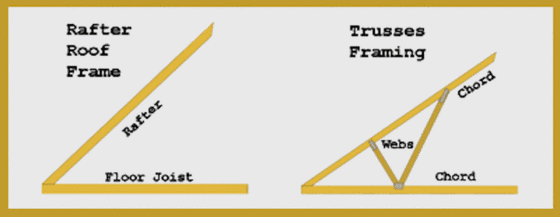
Roof Coverings
The roof coverings are the visible parts of a roof, such as shingles, tiles, or metal sheets. Choosing the right material is crucial, as it affects not only the aesthetics but also the durability of your roof. Consider factors like climate and personal preferences when making this decision.
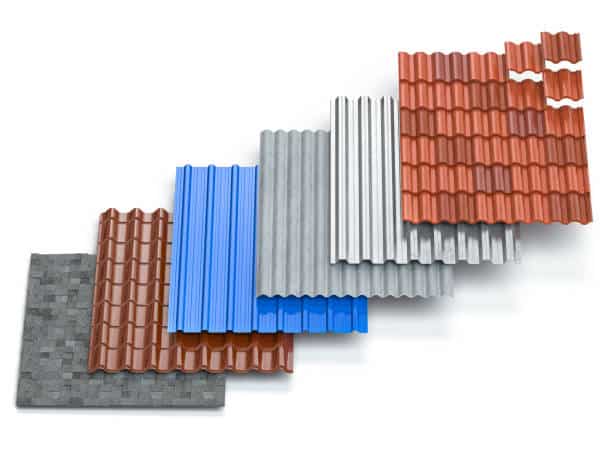
Underlayment and Decking
Beneath the roof coverings, you’ll find underlayment and decking. Underlayment serves as an extra layer of protection, while decking provides a stable base for the roof coverings to adhere to. These components are vital for keeping your roof intact.
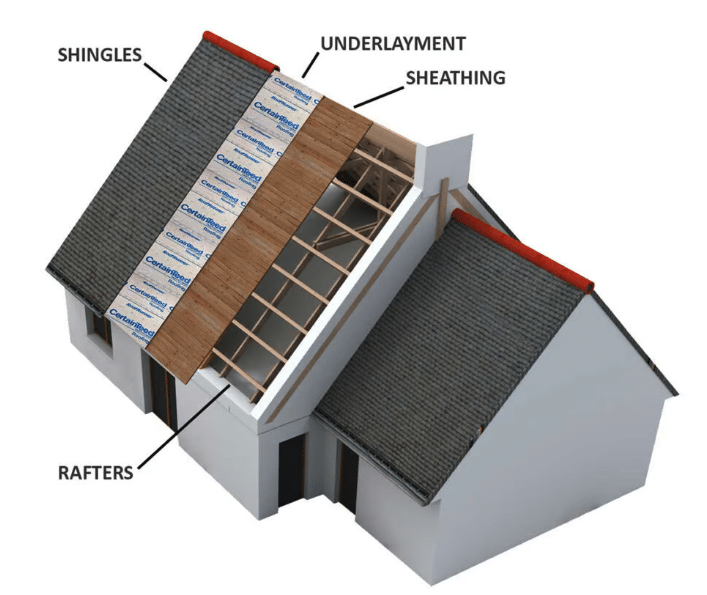
Ventilation and Insulation
Proper ventilation is essential for regulating temperature and moisture within your attic space and the broader roof structure. Insulation, on the other hand, plays a significant role in energy efficiency and keeping your home comfortable year-round.
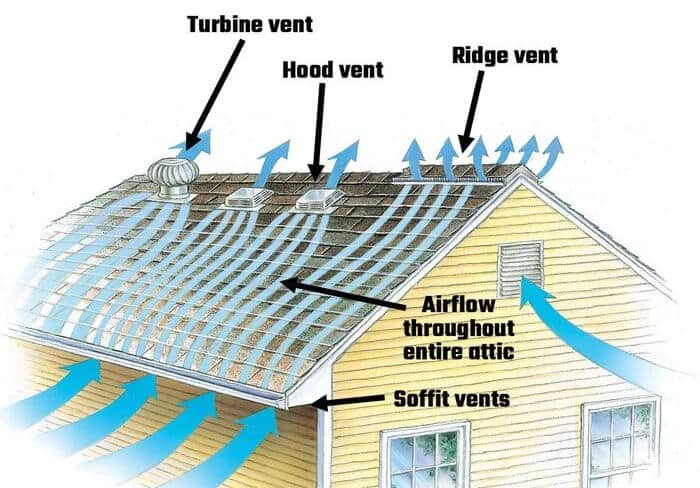
Flashing and Drip Edges
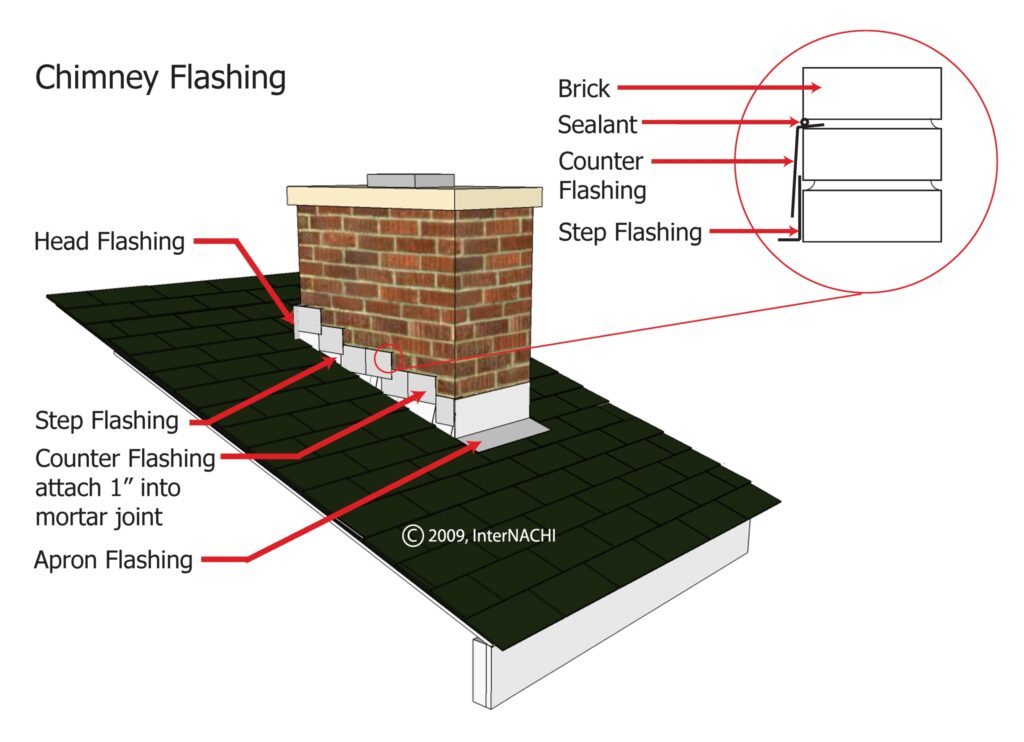
Flashing and drip edges are unsung heroes of your roof. They prevent water infiltration at vulnerable points, such as intersections, chimneys, and eaves. These components are critical for keeping your roof dry.
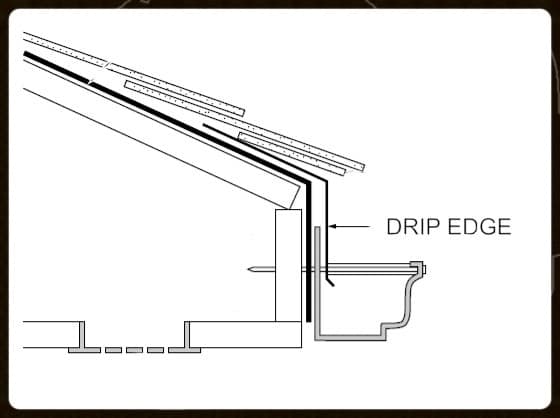
Gutters and Downspouts
Gutters and downspouts may seem small, but they play a big role in protecting your roof and foundation. They channel rainwater away from your home, preventing water damage and erosion.
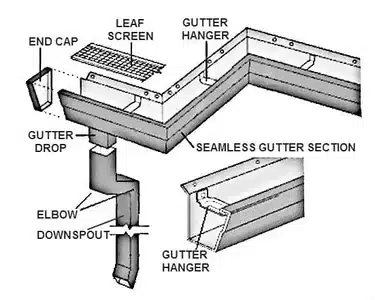
Skylights and Roof Features
If your roof has skylights, chimneys, or roof vents, these are considered roof features. They need to be properly integrated into the anatomy of a roof structure to prevent leaks and ensure structural integrity.
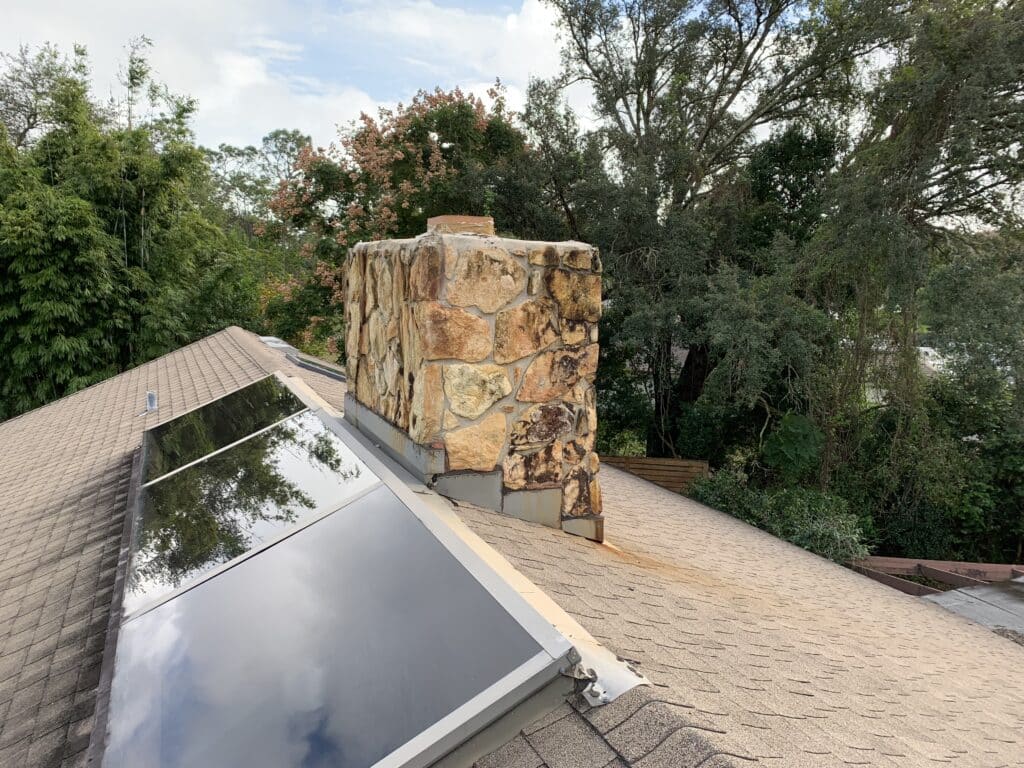
Valley, Rake, Eave, Hip, and Dormer: Additional Parts of a Roof
In addition to the main components, it’s essential to understand some specific parts of a roof:
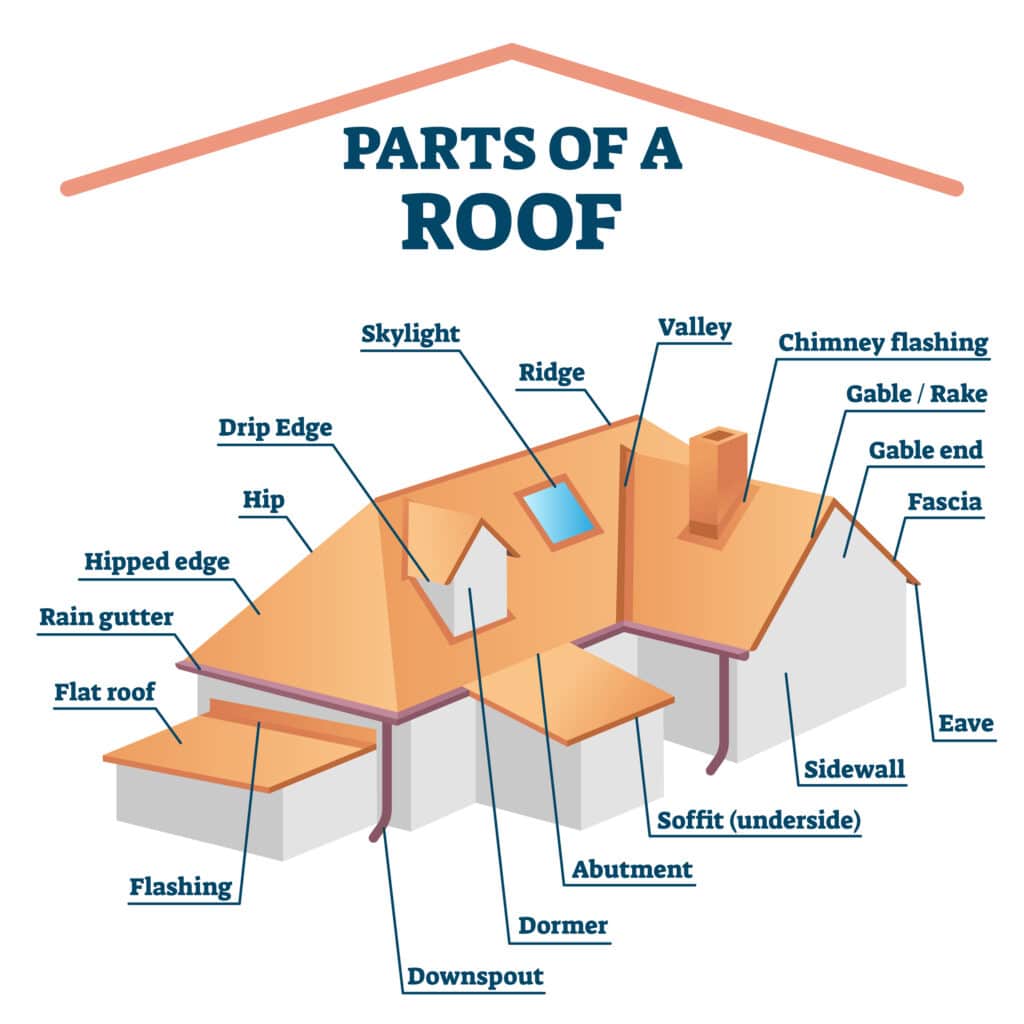
Valley
A valley is the V-shaped junction where two sloping roof sections meet. Proper valley construction and maintenance are crucial to prevent water from pooling and causing leaks.
Rake
The rake is the inclined edge of a gable roof. It’s important for both structural support and enhancing the aesthetics of your roof.
Eave
The eave is the lower edge of a roof that overhangs beyond the walls of your home. It provides protection from sun and rain, and it’s also where you often find the soffit and fascia.
Hip
A hip is the external angle formed by the intersection of two sloping sides of a roof. Hipped roofs are common in many architectural styles and require proper framing and covering.
Dormer
A dormer is a small structure that projects from a sloping roof. It often contains a window and adds character to your home, but it requires proper flashing and waterproofing.
Maintenance Tips
To prolong the life of the parts of a roof and prevent costly repairs, regular maintenance is key. Inspect your roof, clean the gutters, and address any issues promptly. Investing in professional inspections can save you money in the long run.
Conclusion
Your roof is a complex system comprised of numerous components working together to protect your home. By understanding these elements, you can better appreciate the role your roof plays in your daily life. Whether it’s selecting the right roof covering, ensuring proper ventilation, or maintaining your anatomy of a roof, knowledge is your best ally in keeping your home safe and comfortable.
If you have questions about the parts of a roof or need professional roofing services, don’t hesitate to reach out to Pinnacle Roofing & Home Exteriors. We’re here to provide expert guidance and support for all your roofing needs.
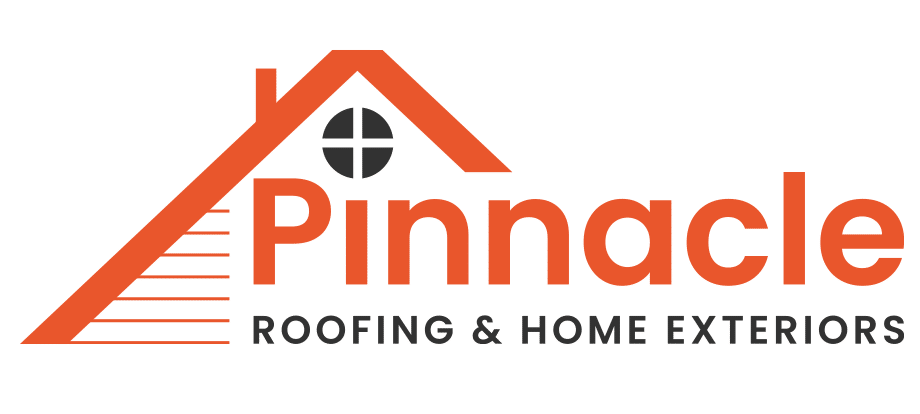


Comments are closed